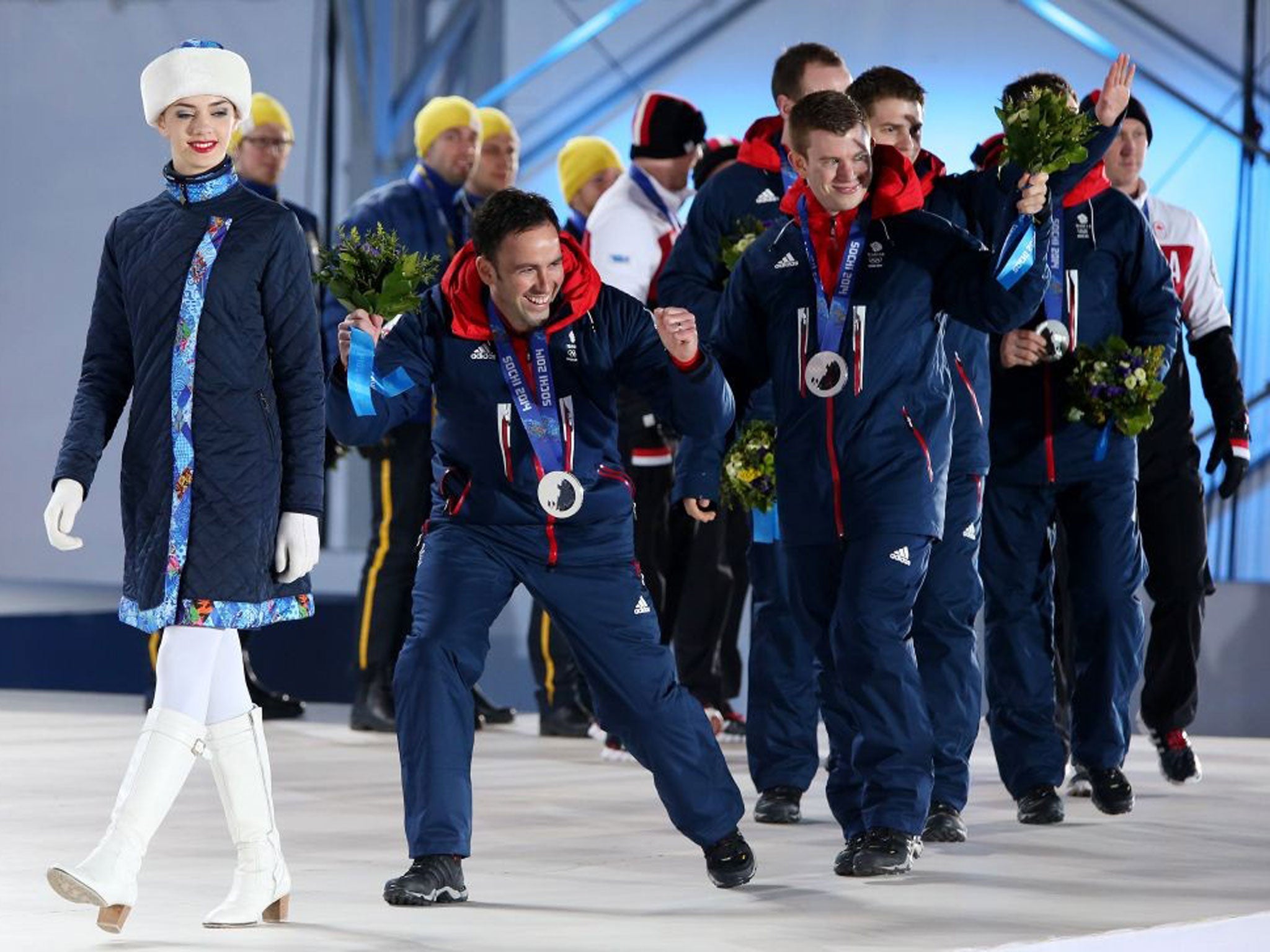Winter Olympics 2014: We can do even better at the next Games, says Team GB chief Mike Hay
After Britain's best showing for 90 years, focus turns to Pyeongchang 2018

However quickly John Jackson manages to steer Britain's bobsleigh around the tight curves of the Sanki Sliding Centre this morning, the Winter Olympics will come to an end tonight with a satisfied glow surrounding the British team.
Jackson and his three team-mates are the last of the 56 British athletes to compete at the Sochi Games, going in their final two runs, and represent one final chance to claim a record-breaking fifth medal.
They will set off in seventh place looking to make up the 0.18sec deficit to the bronze medal. If – and in bobsleigh they deal in hundredths of seconds – they could make that up it would provide a very shiny cherry on top of a Games that for Britain is already the most successful for 90 years, since the days when curlers played in plus-fours, woollen stockings and a stout pair of brogues and Ethel Muckelt, a Moss Side factory worker, danced to an ice skating bronze.
Lizzy Yarnold, hand picked and moulded into the best female skeleton athlete in the world by a well-funded and carefully planned programme, will carry the Union Jack into the closing ceremony in the Fisht Stadium tonight. It is in a very different sporting world that the heirs to 1924 have matched their predecessors. Given the broader competition in 2014, this in reality is Britain's best Winter Games.
"Every single cycle we seem to being getting better and better," said Yarnold, back in Russia after a flying visit home to join Jenny Jones on The Jonathan Ross Show. "We have surpassed our expectations. We are just so proud as team."
Record funding, close to £13.4 million, accompanied the winter version of Team GB to Sochi and, apart from figure skating (and with bobsleigh to come), they have ticked every box asked of them by UK Sport, an organisation that likes boxes ticked in return for lottery funding.
"I don't want to say this is a new dawn or anything, but we are certainly heading in the right direction in terms of athletes competing for medals," said Mike Hay, Britain's understated chef de mission. "We are sitting around 19th in the medal table – we are above Italy – but I am not sure that constitutes calling us a winter sport nation.
"But it is a good platform to move on from. It is about being credible and being able to prove to UK Sport we are worth investing in. We have decent programmes, good coaches. We are making a difference here. Invest in us and we'll show you what we can do in Pyeongchang. I hope that is the result – that we get a bit more investment."
That is the likely outcome. This is a young British team – the inclusion of the new snow events such as slopestyle have given a real boost to Britain's winter hopes. The "Fridge Kids" may have collected only one medal here – and that from the 33‑year-old Jones – but there is enough genuine potential for 2018 to attract investment. It was Alex Coomber's bronze medal in Salt Lake City a dozen years ago that earned British Skeleton significant funding and led to what Yarnold did here.
Hay and those within Britain's winter sports would like to see a team that competes across more sports dispatched to Pyeongchang four years down the line. There is a desire to set-up a regular training camp in Lake Placid for the freestyle skiers and snowboarders, while Simon Timson, UK Sport's director of performance, met with the Dutch coaches behind the speed skating team who won 23 medals here.
"This is just a start," said Hay. "You always go into Games with medal hopes: we went to Vancouver with a couple of world champions that failed to make the podium, so you need quality across a number of sports to realise medals. I am pleased but I am not losing focus on four medals – it's not 24."
Sebastian Coe, in his first Olympics as chairman of the British Olympic Association and attending his first Winter Games, echoed Hay's words. "This is a really good start down the path but it is only a start," said Coe. "There is more to come."
Subscribe to Independent Premium to bookmark this article
Want to bookmark your favourite articles and stories to read or reference later? Start your Independent Premium subscription today.

Join our commenting forum
Join thought-provoking conversations, follow other Independent readers and see their replies